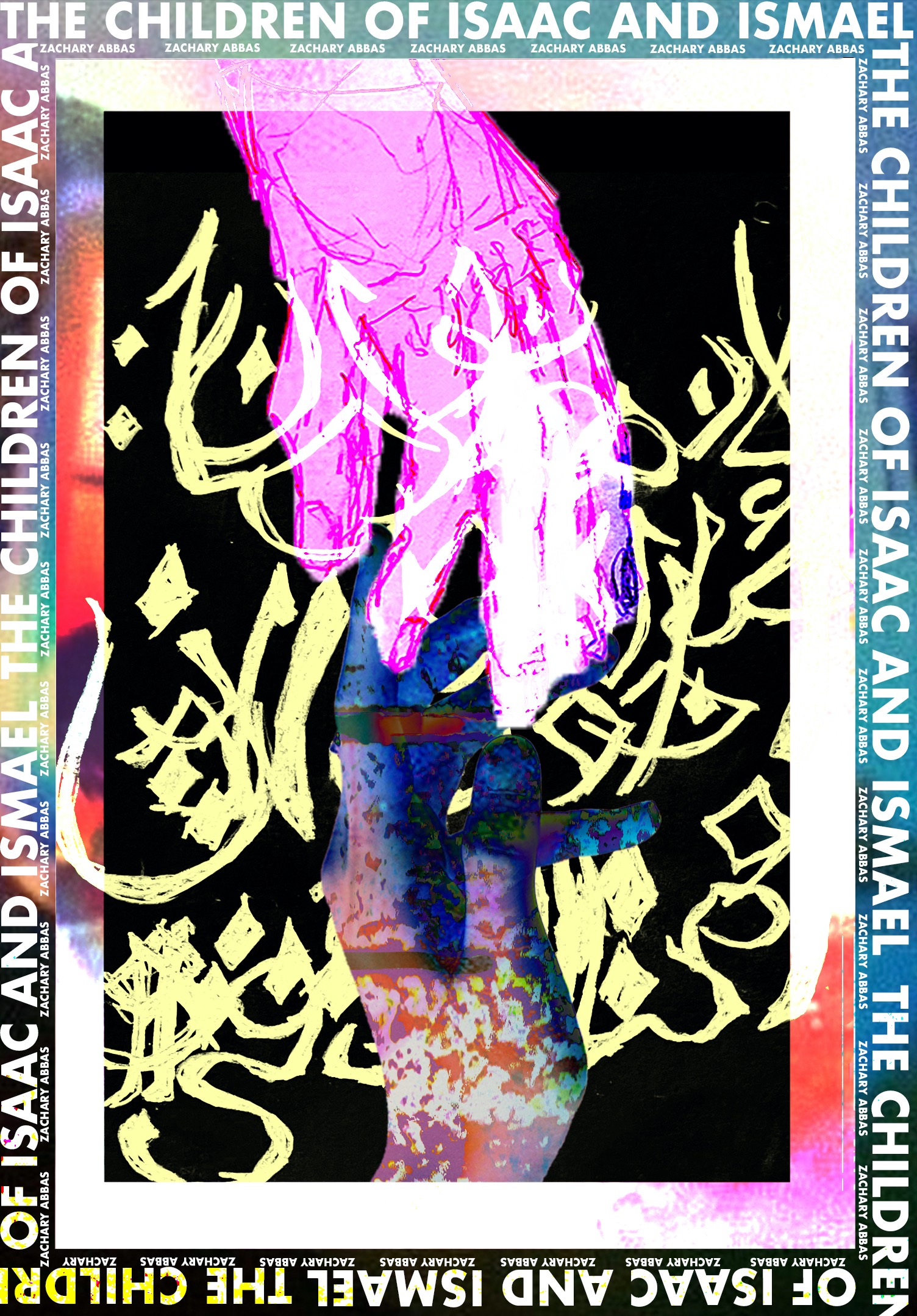The Children of Isaac and Isma’il
Written by: Zachary Abbas
Graphics by: Mateen Bahai
–
“Know that people are of two types: they are either your brothers in religion or your equals in creation.”
– Excerpt from Ali’s (as) letter to Malik al-Ashtar (ra) upon appointing him as Governor of Egypt.
Hate speech is never made in a vacuum, and it always impacts those whom they are directed to. Ever since Kanye West tweeted out ominous threats to the Jewish community a few months ago, there is a demonstrable rise in copycat behavior – whether it be celebrities in the media with a high profile, like basketball player Kyrie Irving’s tweet linking to a documentary quoting Hitler, or local members of our small towns, like antisemitic graffiti calling for “No mercy for the Jews,” shocking a community for the second time in recent months as they woke up to this very blatant threat on their lives. Matters have gotten considerably worse since then, with Kanye doubling down on this rhetoric and, on a live interview, praising Hitler openly and arguing in favor of the Nazi party.
Kanye’s comments also served as an inspiration to those who hold the same views, giving them the security to more openly make similar comments with hate speech directed against the Jewish community rising by more than sixty one percent, coinciding with the recent takeover of Twitter by Elon Musk.
How should we view these events as the Muslim community? Our take should be one of justice and healing. Such statements are not only harmful, they are against our conduct and violate the rights of our brothers and sisters in humanity. This kind of rhetoric inspires people to carry out horrific actions to the communities targeted – such statements inspired the Poway synagogue attack in 2019. The individual behind this attack also attempted to burn down the Islamic Center of Escondido the month prior, justifying once more the utility of an Islamic-Jewish alliance against this hateful rhetoric.
This kind of speech is not something that can be taken lightly because of such precedent, and it has certainly caused fear in the Jewish-American community. It also comes with a noticeable wave of consequences for those affected, as hate crimes skyrocketed and attacks born out of racial or religious bias composed over seventy-five percent of hate crimes in the year 2020, according to statistics and data gathered and released by the FBI. Moreover, these religious-based hate crimes were found to be targeted primarily at Jewish and Muslim individuals.
Our standard of justice is central to our religion – spoken plainly in the Quran, our duty is to “Stand firm for justice as witnesses for Allah even if it is against yourselves” (Surah an-Nisa, 135). Justice means enjoining what is right and forbidding what is wrong. Justice means the example of our Prophet (saws), who admonished us many times to defend our neighbors and to stand against hatred. A famous circulated story about the Prophet (saws) is that of his Jewish neighbor who used to hurl abuse at him in the days of persecution in Mecca, and one day, the Prophet (saws) realized that he had not passed by that particular day, so the Prophet (saws) visited him and found him to be ill, so the Prophet (saws) took his regards and helped him, despite the prior abuse from him.
The ramifications of these statements go beyond our religious duty towards justice – we as a community have suffered heavily in the past from such similar statements, be it the string of violent and islamophobic attacks on Muslims (or people perceived to be Muslim, like members of the Sikh community) following the attacks of September 11th, or the noted increase in hateful rhetoric and discrimination that befell us following the targeted statements of the Trump campaign during the 2016 election. In light of this, we empathize with how the Jewish community feels, because we’ve been there. We’ve suffered similarly from irresponsible statements and actions from high profile figures. We know what it means to be treated differently because of our identity.

